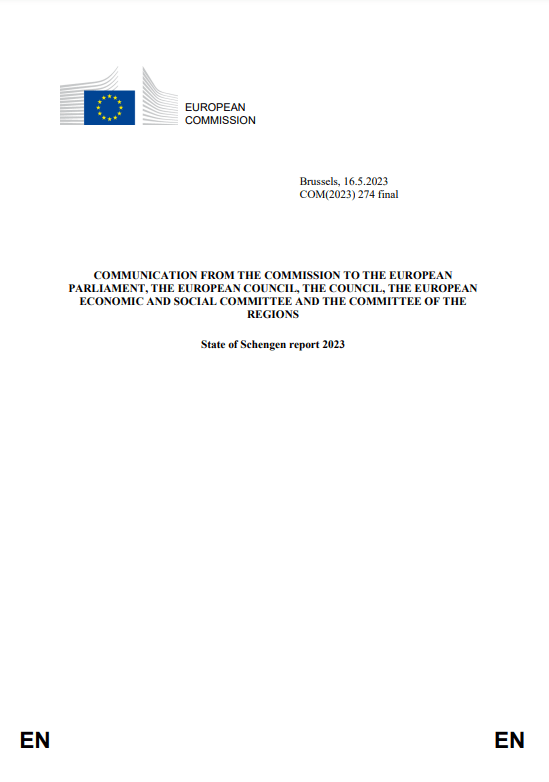The Commission is presenting the second State of Schengen Report. This report is part of the Commission’s initiative to further reinforce the Schengen governance through a yearly reporting exercise presenting the state of Schengen, identifying challenges and best practices, as well as priority areas for action. The State of Schengen Report will serve as basis for political discussions and steer at the Schengen Council on 8 June 2023.

State of the Schengen area
Hundreds of millions of people cross EU’s external borders every year, safely and smoothly, making the EU the most welcoming destination in the world. In 2022, 65% of world’s tourists who travelled internationally came to Europe, making Schengen the most attractive and visited area in the world.
While further work is required to continue strengthening external border management, to make returns more effective and to enhance police cooperation, Schengen is overall well-functioning and robust.
Tangible achievements:
- Schengen enlargement: Croatia joined the Schengen area on 1 January 2023. This is the first enlargement over a decade and it is a significant achievement for Croatia and the Schengen area.
- Stronger Schengen governance: Since March 2022, a new Schengen Council brings together the Ministers of the Schengen area to ensure strategic steer and operational guidance. A Schengen Coordinator has been appointed in June 2022 to support this new governance framework. Tools such as the Schengen Barometer, stronger Schengen evaluations and the upcoming Schengen Scoreboard enable a common situational awareness of the functioning of the Schengen area.
- Borders and police cooperation: In March 2023, the Commission established the first-ever European border management strategy. In the same month, a renewed Schengen Information System (SIS) entered into operation. This is the first stepping-stone for the interoperability of large-scale IT systems in the area of justice and home affairs and is crucial for a safer Schengen, with a stronger role for Europol.

State of Schengen report 2023
|
Key priorities:
- Consolidating Schengen governance: The new Schengen evaluation framework with targeted country recommendations will further help Member States to strengthen their operational capacity. On this basis, the Schengen Council will be able to recommend Schengen-wide reforms and actions.
- Further strengthening EU external borders: implementing the new strategic approach on European Integrated Border Management, delivering on the Entry-Exit System.
- Enhance the effectiveness of the return system: making use of SIS, maximising the possibilities under the Commission Recommendation on mutual recognition of return decisions and on expediting returns.
- Enhance internal security of the Schengen area to fight against organised crime and drugs trafficking: from full operationalisation of the Council Recommendation on police cooperation to improving intelligence sharing and common risk analysis.
- Schengen enlargement: the Commission calls once again on the Council to further strengthen European unity and allow Romania and Bulgaria to fully join Schengen.
- Phasing out long-lasting internal border controls and replacing these by alternative police cooperation measures. Reintroducing border controls must remain exceptional, strictly limited in time and a measure of last resort. The Commission will launch a formal consultation process under Article 27 of the Schengen Borders Code with all concerned Member States and is prepared to make use of legal means at its disposal should these consultations not result in a clear commitment to change.
- Better use of EU visa policy tools to address irregular migration and security risks to ensure the monitoring of the functioning of the visa free regimes, alignment of third partners’ visa policy with the one of the EU, as well as the abolishment of risky investor citizenship and residence schemes.
The report is accompanied by best practices, which show innovative solutions in Member States in key areas such as external border management, visa policy returns, police cooperation, IT systems and data protection.
More information: European Commission






Leave a Reply